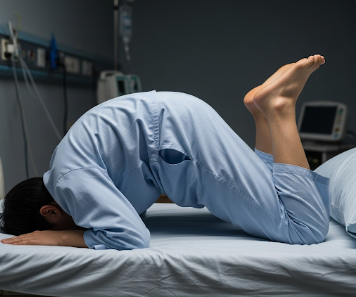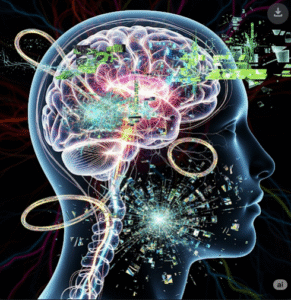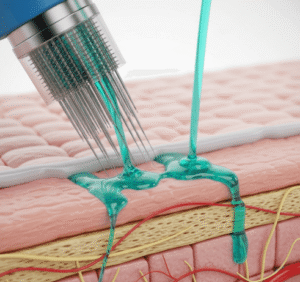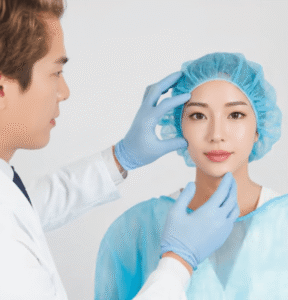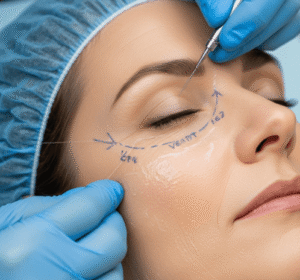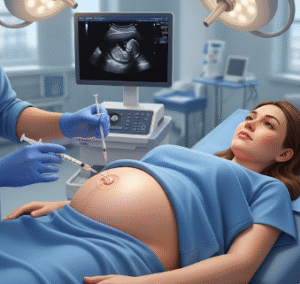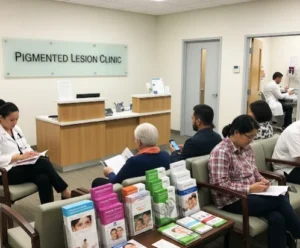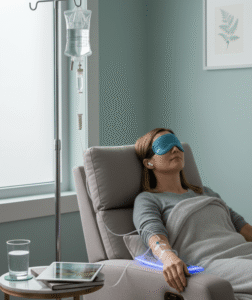Overview
Opisthotonos is a rare but serious neurological condition characterized by severe muscle spasms causing the body to arch backward, with the head and heels bent backward and the spine curved. This condition often indicates serious underlying neurological or infectious disorders and requires urgent medical attention.
In Korea, opisthotonos is managed in neurology and critical care units, where specialists focus on diagnosing the cause and providing immediate supportive treatment to prevent complications such as respiratory distress.
Key Facts
➤ Opisthotonos involves extreme hyperextension of the spine due to involuntary muscle contractions.
➤ It is usually associated with severe neurological or infectious conditions.
➤ Can occur in both children and adults, but more commonly seen in severe pediatric infections or tetanus.
➤ In Korea, early recognition and treatment in hospitals are crucial for reducing morbidity and mortality.
What is Opisthotonos?
Opisthotonos is a postural deformity caused by intense, sustained muscle spasms, typically involving the back muscles, neck, and sometimes limbs. The condition is most often a symptom of an underlying disease rather than a disease itself.
➔ Typical presentation:
- Backward arching of the head, neck, and spine.
- Rigid, stiff body posture.
- Painful muscle contractions making movement extremely difficult.
Symptoms Related to Opisthotonos
➤ Severe muscle rigidity and spasms.
➤ Backward arching of the body (head, neck, spine).
➤ Difficulty breathing or swallowing due to muscle involvement.
➤ Pain and discomfort in the back and neck.
➤ Fever or signs of infection if caused by tetanus or meningitis.
➤ In infants, opisthotonos may be triggered by serious infections or neurological disorders.
Causes / Possible Causes
Infectious Causes
➤ Tetanus – bacterial infection producing toxins causing muscle rigidity and spasms.
➤ Meningitis – inflammation of the protective membranes around the brain and spinal cord.
➤ Severe encephalitis – viral or bacterial infections affecting the central nervous system.
Neurological Causes
➤ Severe brain injury or trauma – affecting motor control.
➤ Cerebral palsy or other neurological disorders in children.
➤ Stroke or hemorrhage impacting motor pathways.
Metabolic or Toxic Causes
➤ Certain poisons or toxins affecting neuromuscular function.
➤ Severe electrolyte imbalances leading to muscle rigidity.
Risk Factors
➤ Unvaccinated individuals, especially against tetanus.
➤ Newborns or infants with neonatal infections.
➤ Patients with neurological conditions affecting muscle control.
➤ Exposure to environmental toxins or certain drugs.
➤ Severe trauma or head injury history.
Complications
Opisthotonos can lead to life-threatening complications, such as:
➤ Respiratory compromise due to chest muscle involvement.
➤ Difficulty swallowing, risking aspiration.
➤ Severe pain and immobility.
➤ Secondary infections from prolonged immobility.
➤ Death if underlying causes like tetanus are untreated.
When Should I See My Doctor?
Immediate medical attention is necessary if:
➤ Severe backward arching or stiffening occurs suddenly.
➤ Associated with difficulty breathing, swallowing, or seizures.
➤ Fever or signs of systemic infection are present.
➤ The patient is unvaccinated or recently injured.
➤ Symptoms occur in infants or immunocompromised individuals.
Care and Treatment
Immediate Management
➤ Hospitalization in intensive care units may be required.
➤ Airway support and monitoring for breathing difficulties.
➤ Pain relief and muscle relaxants to reduce severe spasms.
Medical Treatment
➤ Antitoxins or immunoglobulins for tetanus.
➤ Antibiotics if infection is bacterial.
➤ Anticonvulsants or sedatives for severe muscle spasms.
➤ Correction of electrolyte imbalances or metabolic causes.
Supportive Care
➤ Hydration and nutrition via IV or feeding support if swallowing is impaired.
➤ Physical therapy after stabilization to prevent long-term muscle contractures.
➤ Monitoring for complications such as aspiration pneumonia or cardiac strain.
Preventive Measures
➤ Vaccination against tetanus and other infectious diseases.
➤ Proper wound care to avoid tetanus infection.
➤ Early treatment of infections that can affect the nervous system.
➤ Avoid exposure to environmental toxins and maintain safe practices in high-risk settings.
Treatment Options in Korea
Korean hospitals provide advanced care for opisthotonos, including:
Diagnostic Services
➤ Neurological examination to identify underlying causes.
➤ Blood tests and cultures to detect infections.
➤ Imaging studies – MRI or CT scans to evaluate brain and spinal cord involvement.
➤ Electrolyte and metabolic panels for supportive diagnosis.
Therapies and Supportive Care
➤ ICU monitoring for severe cases.
➤ Administration of antitoxins, antibiotics, and muscle relaxants.
➤ Respiratory support for compromised breathing.
➤ Multidisciplinary care – neurologists, infectious disease specialists, and critical care teams.
➤ Patient education on prevention through vaccination and prompt medical care.
✅ In summary: Opisthotonos is a serious neurological symptom characterized by extreme backward arching due to muscle spasms. Causes include tetanus, meningitis, neurological disorders, or toxins. In Korea, prompt diagnosis and intensive care ensure symptom management, prevent life-threatening complications, and address underlying causes.

